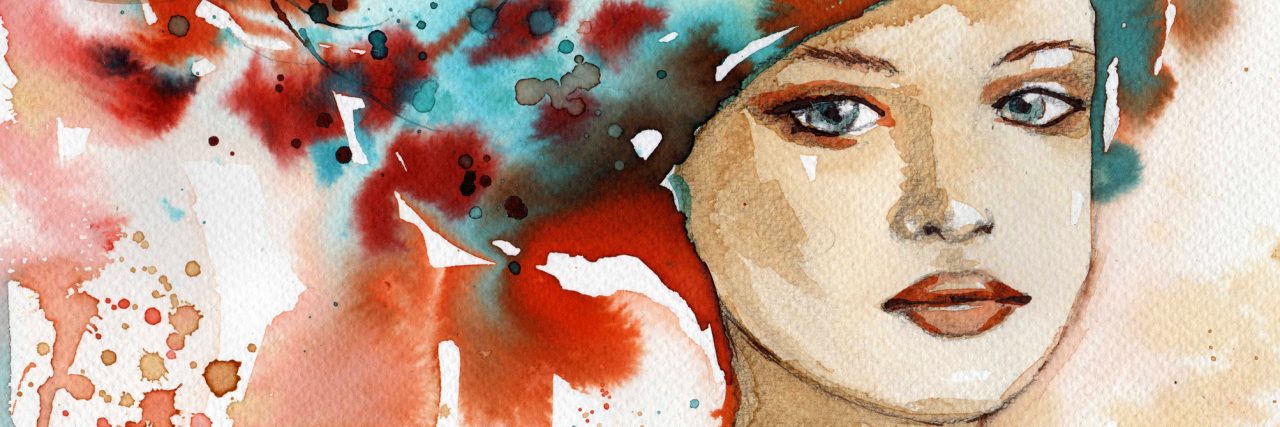When You Have to Come to Terms With the Possibility of Having Depression for Life
After over 20 years of having depressive episodes, it is only recently that I’ve reconciled with the fact I might have depression for life. This may sound pessimistic, but in a current relapse fog, I choose to search for the optimism tingeing the dark cloud, hovering over me once more.
This is not admitting defeat. I have railed against depression both when ill and mentally healthy. I am not lying down and accepting a dubious fate. There is no loss in recognizing my enemy and knowing knowledge is power.
When I was first diagnosed with depression in my early 20s, I thought my world had fallen apart. I didn’t know anyone who had been through depression. No one ever spoke about it. Depression was the province of angst-ridden characters in television dramas or that woman down the road who always looked sorrowful. I was young and life was ready to be seized. Instead, I was lying inert on the sofa, contemplating how I had gotten there. I wondered if I would ever get back up again.
I recovered. I moved on. Then depression struck, again, and again and again.
There have been so many depressive episodes now I’ve lost count. Some were mild and fleeting. Others brought me to my knees. I have worked through the depression barometer from lethargy all the way to the suicide attempt. There is not much left you can tell me about depression that I haven’t seen, experienced or heard — and yet, when it comes, it still blindsides me.
I no longer view coming to terms with having depression as a life illness as a weakness on my part. A large part of my life has been spent waiting for depression to appear again, therefore I guess I have already accepted it — albeit unwittingly.
It could appear like I’m giving up. In stating, “I accept depression as part of my life,” it may appear I am willingly taking on a life sentence. I may sound like I’m telling you if you get depression a few times, you it will be with you forever. This is most certainly not the case for everyone.
Your story might differ from mine. You might have experienced depression once and that was it. It may have struck a few times and will never appear again. Your life could be free of this cruel mental illness forever.
I am not the voice of doom. I’m not a doctor, nor am I the owner of a crystal ball. Yes, I may never get depression ever again and then you can show me this piece and I will most gratefully tell you I was wrong. However, I am also a realist.
I listen to the mental health professionals who help me, I follow research into depression closely, I’m passionate about eradicating the stigmas that surround mental illness and I have lived through this. I know I am susceptible to it, both biologically and situationally. I come from a family where depression has been prevalent in many family members of different generations. I know the depression odds are stacked against me, but I do not will it into being. Accepting depression is part of my makeup does not mean I welcome it. When I am not depressed, I live life as fully as I possibly can. I seize the moments to reconnect fully with loved ones, to get back into my writing career with gusto and to live life a lot harder. I am not reclining on a chaise lounge in some kind of dubious Romantic melancholia. Depression just isn’t that pretty. I may still be lying on sofas, done in by depression, but I’m not reveling in it, and I’m certainly not down and out forever.
On the days when the “negative thinking mill” isn’t frantically running, I look to better times when I can live freely of depression. I am always aware of depression’s scary presence in my life — akin to the “monster” that lurks under a child’s bed. Unfortunately, unlike that fantasy monster that children will outgrow, the depression monster is real. When I am thriving, I sometimes forget it exists. Other days it reminds me of its reality, through a momentary fear that the “good times” may not last much longer.
I believe I am showing strength of mind in facing the illness that paradoxically weakens my mind. In reconciling with how depression is probably something that will be part of my life until the day I die, I am strangely optimistic.
I used to live in a state of denial when I become depressed. I would take far too long to get medical help because I didn’t want to admit it had returned. I thought I was pathetic for having to take antidepressants because I was comparing myself to others who didn’t. I believed the cycle of depression lies that spew out shame and guilt upon the person struggling.
However I choose to begin to say I have an illness called depression. I will most likely have it on and off for life. Each time it comes, I will be more ready for it than I was before.
I am no depression warrior. Sometimes I will fail and feel sorry for myself. At the time of writing this, I am fighting with every last bit of my strength not to be afraid of sharing this piece. I owe this to myself and to you, my fellow depression fighters.
Whether depression is with you for life or not, sometimes we need to look that scary monster in the face and expose it for what it is and isn’t. Depression is a painful illness that has happened to us. It does not define us. We are not depression.
We want to hear your story. Become a Mighty contributor here.
Thinkstock photo via bruniewska.

